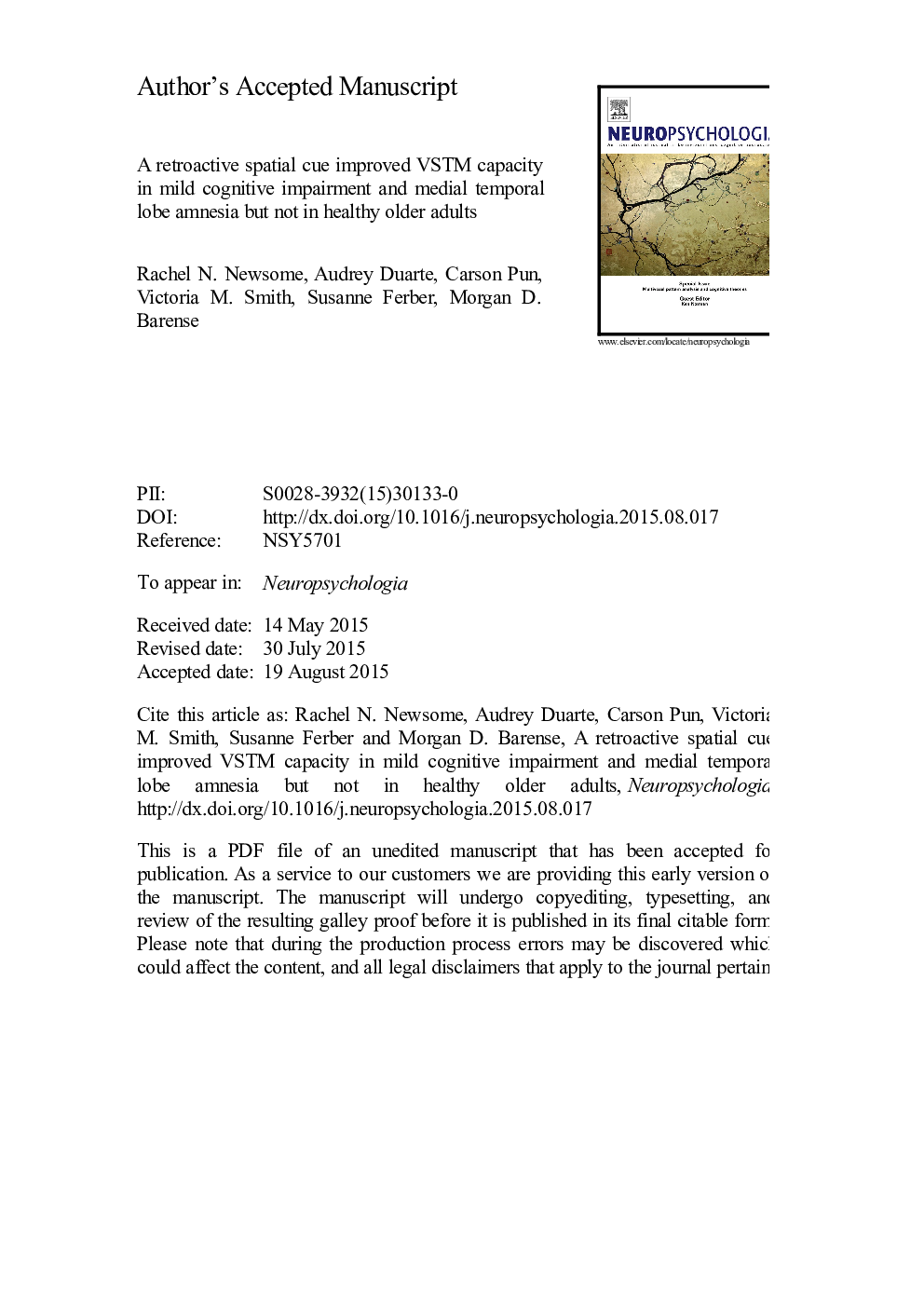| Article ID | Journal | Published Year | Pages | File Type |
|---|---|---|---|---|
| 7319698 | Neuropsychologia | 2015 | 42 Pages |
Abstract
Visual short-term memory (VSTM) is a vital cognitive ability, connecting visual input with conscious awareness. VSTM performance declines with mild cognitive impairment (MCI) and medial temporal lobe (MTL) amnesia. Many studies have shown that providing a spatial retrospective cue (“retrocue”) improves VSTM capacity estimates for healthy young adults. However, one study has demonstrated that older adults are unable to use a retrocue to inhibit irrelevant items from memory. It is unknown whether patients with MCI and MTL amnesia will be able to use a retrocue to benefit their memory. We administered a retrocue and a baseline (simultaneous cue, “simucue”) task to young adults, older adults, MCI patients, and MTL cases. Consistent with previous findings, young adults showed a retrocue benefit, whereas healthy older adults did not. In contrast, both MCI patients and MTL cases showed a retrocue benefit - the use of a retrocue brought patient performance up to the level of age-matched controls. We speculate that the patients were able to use the spatial information from the retrocue to reduce interference and facilitate binding items to their locations.
Keywords
Related Topics
Life Sciences
Neuroscience
Behavioral Neuroscience
Authors
Rachel N. Newsome, Audrey Duarte, Carson Pun, Victoria M. Smith, Susanne Ferber, Morgan D. Barense,
